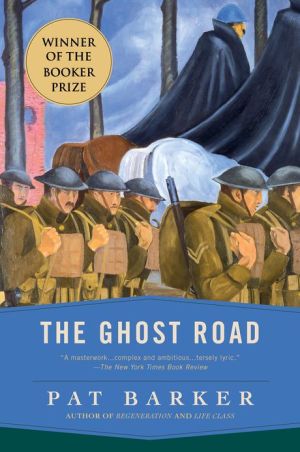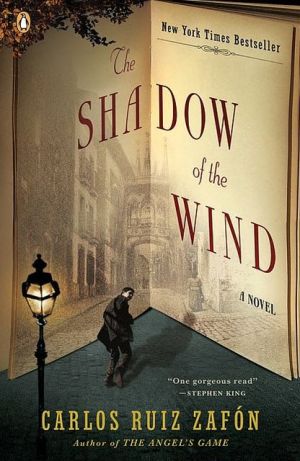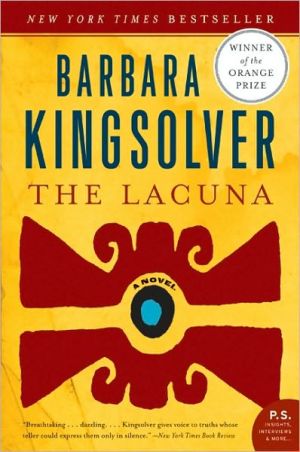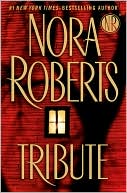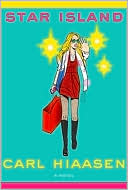The Ghost Road
The final book in the Regeneration Trilogy, and winner of the 1995 Booker Prize\ \ The Ghost Road is the culminating masterpiece of Pat Barker's towering World War I fiction trilogy. The time of the novel is the closing months of the most senselessly savage of modern conflicts. In France, millions of men engaged in brutal trench warfare are all "ghosts in the making." In England, psychologist William Rivers, with severe pangs of conscience, treats the mental casualties of the...
Search in google:
Central to this novel are two men divided by class and experience, but sharing a mutual respect and empathy. One is Lieutenant Billy Prior, cured of shell shock by famed psychologist Dr. William Rivers at Craiglockhart War Hospital, and determined to return to the front in France even as the war enters its final ferocious phase in the late summer of 1918. The other is Dr. Rivers himself, consumed by the medical challenge and moral dilemma of restoring men to health so that they can be sent back to the battlefields and almost certain death. Billy Prior is a working-class man on the rise, a "temporary gentleman," who inhabits a sexual, social, and moral no-man's-land. His sexual encounters with both women and men are tinged with a cynical fatalism that the war has engendered. Still, he is eager to join a fellow Craiglockhart "graduate," the poet Wilfred Owen, in France in time to participate in the great English offensive, the "one last push" intended to redeem all the shining heroism and senseless slaughter that has gone before.SalonAmong the characters in this astonishing novel, which just won the United Kingdom's top literary award, the Booker Prize, is a physician, struggling to help shell-shocked British soldiers recover their sanity. Overwhelmed by their suffering, he finds himself fearing that the tales they tell him "would become one story, the voices blend into a single cry of pain." Set during the last days of World War I, The Ghost Road follows the efforts of several characters to come to terms with the horrific effects of the war on their lives and their souls. Lt. Billy Prior, a "temporary gentleman" elevated from the ranks of the working class by his battlefield commission, discovers that the only place he feels alive or at home is on the front. Hospitalized following his collapse, he fights stubbornly to get back to his troops, away from the seedy precincts of the home front, from a country that seems to him to be filled with "drifting, dispossessed people," a society in a condition "of absolute free-fall." Ms. Barker, the author of several gritty novels about the modern British working class, including Union Street and The Century's Daughter, is an audacious writer. Ghost Road is the third volume in a trilogy about the British experience in World War I (Regeneration and The Eye in the Door are the two earlier volumes). The novels adroitly mingle historical characters with fictional creations: Dr. William Rivers, charged with rehabilitating shell-shocked soldiers, did exist. And while Billy Prior is invented, one of the fellow officers in Billy's regiment is Wilfred Owen, the extraordinary poet who died in the last major campaign of the war. Although the literature on the war is vast, Ms. Barker's view of life on the front manages to be startling and convincing; she catches the awful "immobility, passivity and helplessness" of trench warfare, the "morose disgust" that came from "living in trenches that had bits of human bone sticking out of the walls," a world in which the stench of corruption is inescapable. It's as if she has reinvented the genre of the war novel, having dug down through dense layers of stereotypes and recovered something of the war's true horror. Billy Prior -- fatalistic, intelligent, isolated from everything but his experience of war -- is a remarkable creation. In her portraits of Billy and his fellow soldiers, Ms. Barker has recreated the singular experiences of individuals who reveal, in their particular stories of grief and horror, the war's true cost and tragedy.
\ SalonAmong the characters in this astonishing novel, which just won the United Kingdom's top literary award, the Booker Prize, is a physician, struggling to help shell-shocked British soldiers recover their sanity. Overwhelmed by their suffering, he finds himself fearing that the tales they tell him "would become one story, the voices blend into a single cry of pain." Set during the last days of World War I, The Ghost Road follows the efforts of several characters to come to terms with the horrific effects of the war on their lives and their souls. Lt. Billy Prior, a "temporary gentleman" elevated from the ranks of the working class by his battlefield commission, discovers that the only place he feels alive or at home is on the front. Hospitalized following his collapse, he fights stubbornly to get back to his troops, away from the seedy precincts of the home front, from a country that seems to him to be filled with "drifting, dispossessed people," a society in a condition "of absolute free-fall."\ Ms. Barker, the author of several gritty novels about the modern British working class, including Union Street and The Century's Daughter, is an audacious writer. Ghost Road is the third volume in a trilogy about the British experience in World War I (Regeneration and The Eye in the Door are the two earlier volumes). The novels adroitly mingle historical characters with fictional creations: Dr. William Rivers, charged with rehabilitating shell-shocked soldiers, did exist. And while Billy Prior is invented, one of the fellow officers in Billy's regiment is Wilfred Owen, the extraordinary poet who died in the last major campaign of the war.\ Although the literature on the war is vast, Ms. Barker's view of life on the front manages to be startling and convincing; she catches the awful "immobility, passivity and helplessness" of trench warfare, the "morose disgust" that came from "living in trenches that had bits of human bone sticking out of the walls," a world in which the stench of corruption is inescapable. It's as if she has reinvented the genre of the war novel, having dug down through dense layers of stereotypes and recovered something of the war's true horror. Billy Prior -- fatalistic, intelligent, isolated from everything but his experience of war -- is a remarkable creation. In her portraits of Billy and his fellow soldiers, Ms. Barker has recreated the singular experiences of individuals who reveal, in their particular stories of grief and horror, the war's true cost and tragedy.\ \ \ \ \ \ Publishers Weekly - Publisher's Weekly\ The Booker Prize recently awarded to Barker for this book, the culmination of her astonishing WWI trilogy that began with Regeneration and The Eye in the Door, persuaded Dutton to move publication ahead by eight months, which is good news for American readers. Though it would seem almost impossible to look at that appalling conflict with a fresh eye, Barker has succeeded in ways that define the novelist's art: by close observation as well as by deployment of a broad and painfully compassionate vision, all rendered in prose whose very simplicity speaks volumes. The present book can be read without reference to the others, but all are mutually enriching. They revolve around William Rivers, a psychologist who pioneered the treatment of shell shock, and some of his patients, who include such real-life figures as poets Wilfred Owen and Siegfried Sassoon, as well as the fictional Lieutenant Billy Prior, a bisexual whose life as an officer is complicated by his working-class origins. The questions the trilogy addresses are profound ones like the nature of sanity, the politics of class, war and sex, and the struggle to maintain humanity in the face of meaningless slaughter. In The Ghost Road, the war is nearing its end, which renders the continuing horrors of trench warfare ever more futile. Prior is sent back to the front after Rivers's treatment, enjoys a strange idyllic interlude in a ruined village, rescues a horribly wounded fellow officer and then faces the stupidest massacre of all. Meanwhile Rivers takes on new nightmare cases-and begins to remember his anthropological researches in Melanesia years before, when he strove to understand the rituals of a people whose greatest pleasure, head-hunting, had been abolished by a British colonial administration. The contrast between the primitives' deeply considered approach to death and the pointless killing indulged in by supposedly more civilized people is only hinted at, but it gives the book, particularly in its deeply eloquent concluding pages, enormous resonance. The whole trilogy, which in its entirety is only equivalent in length to one blockbuster serial-killer frenzy, is a triumph of an imagination at once poetic and practical. (Dec.)\ \
